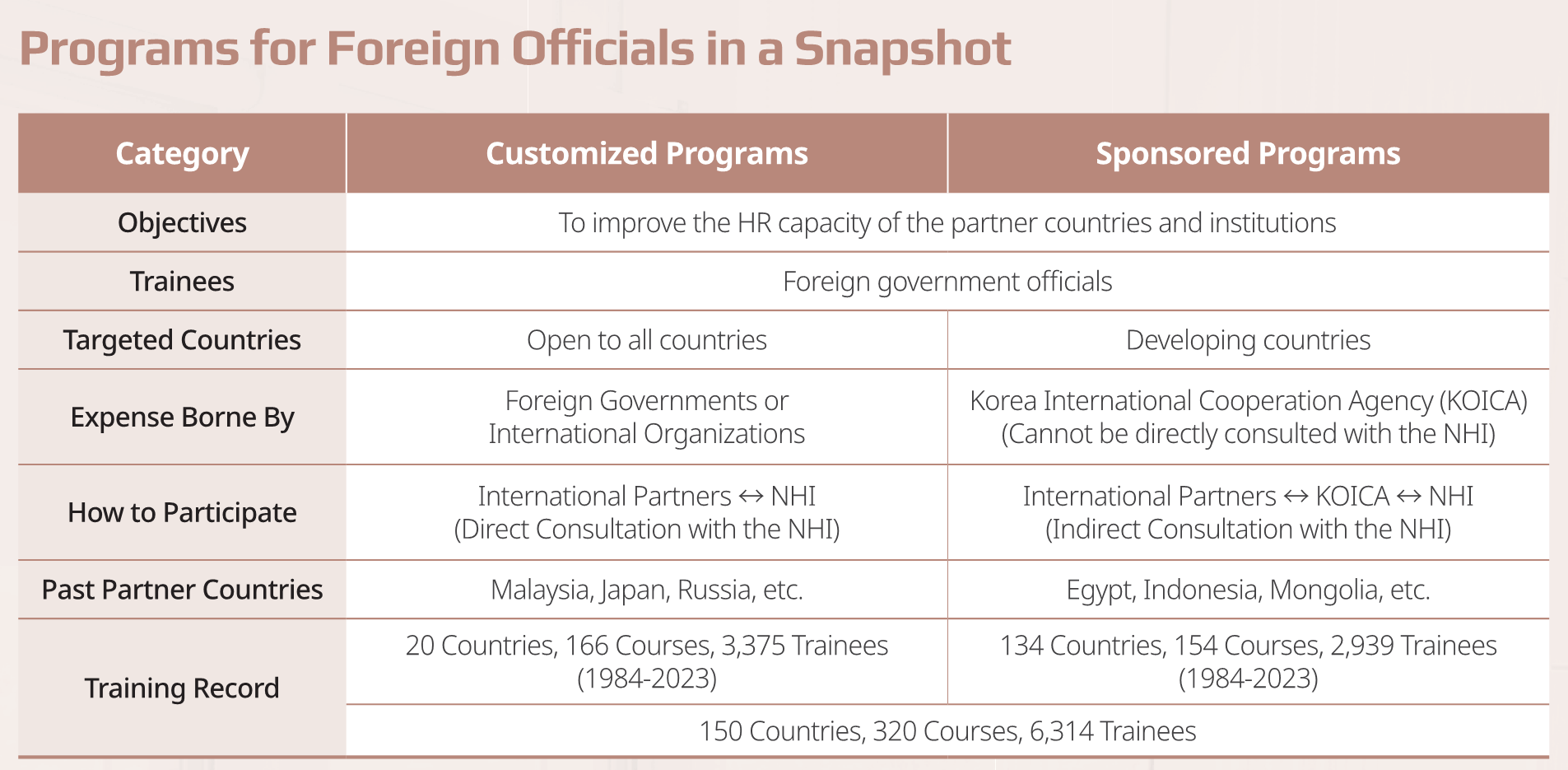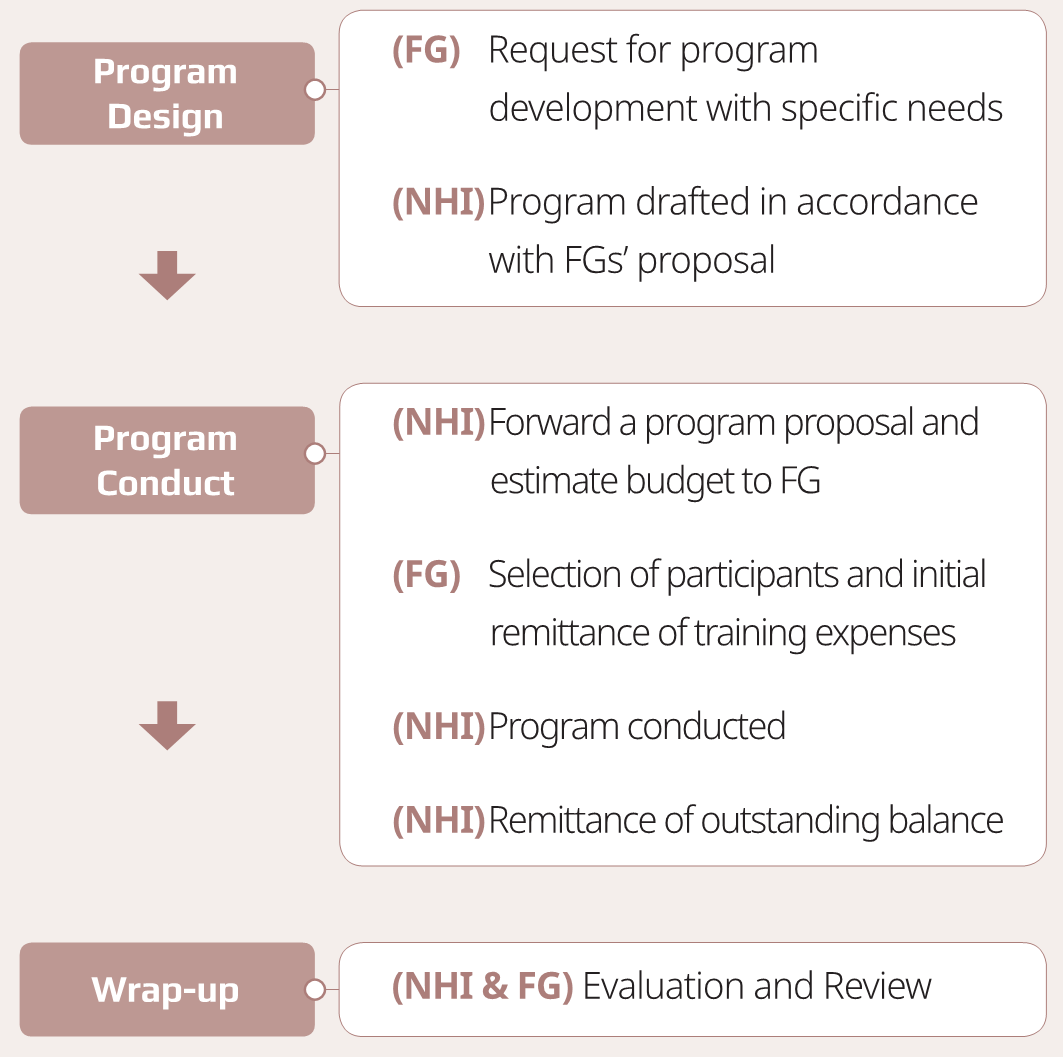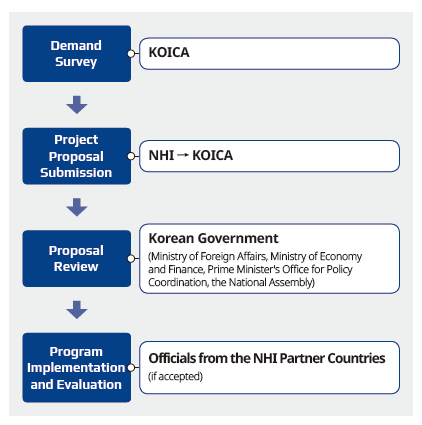
The NHI has designed and conducted programs for foreign offi cials mainly, but not exclusively, from developing countries. The primary goal of these programs was to introduce Korea’s experience in national development and economic growth, as well as to share policies and best practices in administrative management and government innovation. Through these programs, the NHI wants to actively spread the so-called Haeng-Jeong Hallyu, also known as the administrative Korean Wave, as well as to vitalize global educational exchange and cooperation designed to promote Korea’s global standing as a leading Global Public Hrd Hub. The programs for foreign offi cials are divided into two categories depending on the responsible subject for the training expenses: customized programs directly requested by Foreign Governments (FGs) and sponsored programs supported by the Korea International Cooperation Agency (KOICA).
Customized Programs refer to the NHI’s educational programs ’customized’ for the countries that propose international training for their officials to the NHI. Although the NHI is primarily responsible for managing the operational side of the programs, it also works in close consultation with partner governments to design and develop the most effective training schemes. Particularly noteworthy is the NHI’s long-lasting partnership with Malaysia since 1984. That was when Dr. Mohamad Mahathir first proposed the Look East Policy in 1982, followed by the customized programs for Malaysian public talents designed and implemented in partnership with Korea’s then-COTI: the Central Officials Training Institute. Under the Customized Programs scheme, the country or organization that first proposes the program is primarily responsible for the expenses incurred during the training. At the core of customized trainings is the idea that the NHI will prepare the most fruitful and insightful learning opportunities for global public talents in exchange for the foreign governments’ commitment and dedication in nurturing some of the best public officials prepared to serve the public. To this end, the NHI brings some of the countries’ best courses to the forefront, with particular thematic focus on economic development, the Fourth Industrial Revolution, and Governance Capacity Enhancement. A general overview of the project flow for the NHI’s customized programs is as follows:

As part of Official Development Assistance (ODA) funded by Korean taxpayers, the NHI conducts invited training for officials from developing countries sponsored by the Korea International Cooperation Agency, better known as KOICA. The NHI Global Team spares no effort to see to it that our sponsored programs bring about the most desired and tangible outcomes. The NHI’s sponsored programs are geared towards providing ready-applicable and job-related modules that will help the trainees acquire critical competencies. As South Korea’s leading Public HRD organization with expertise on public sector personnel affairs, our primary expertise or focus lies in the following areas: Personnel Management, Public Administration, Public HRD, Organizational Management, Policy Management, and e-Government. Please do take note that KOICA-sponsored programs require training programs to be designed and consulted with KOICA or the Ministry of Foreign Affairs, Korea, prior to implementation. While the NHI is poised to actively engage with partner institutions, we will be redoubling our efforts in close collaboration with KOICA. Taking this account, we encourage our foreign government partners to engage with the sponsoring organizations first in an effort to smoothen the administrative process. Below depicts a general program flow for the KOICA-sponsored programs:
